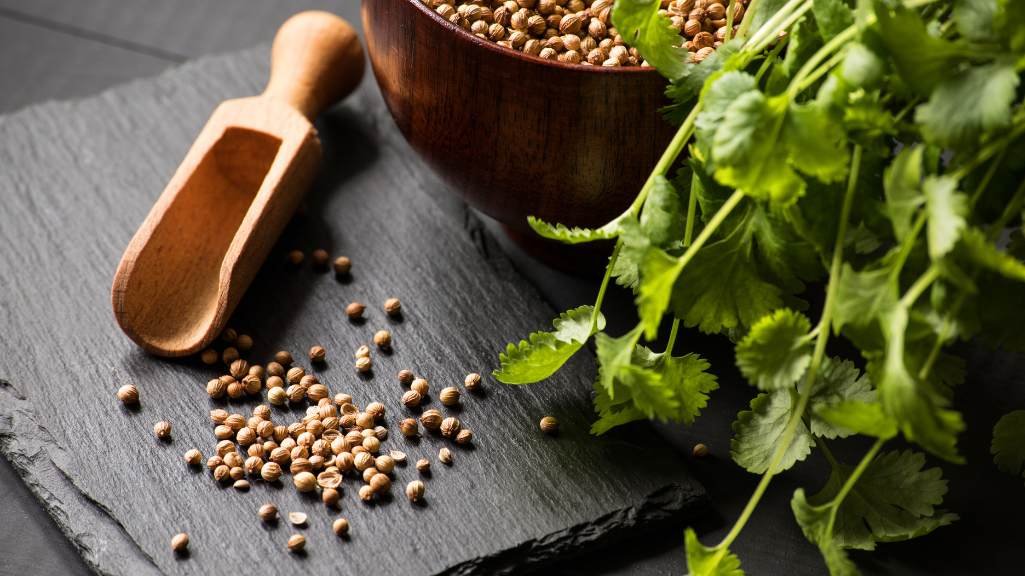Coriander: A Flavorful Herb with Rich Culinary and Medicinal Benefits
Devin Barton
. 2 min read
Coriander, scientifically known as Coriandrum sativum, is a versatile and aromatic herb that has been cherished for thousands of years across various cultures. Also referred to as cilantro in some regions, coriander is celebrated not only for its distinctive taste but also for its numerous culinary and medicinal properties. In this digital age, where culinary enthusiasts and health-conscious individuals seek convenience, several apps can enhance the coriander experience. This article aims to provide an overview of coriander, exploring its history, botanical characteristics, culinary uses, nutritional value, health benefits, and tips for growing and storing this delightful herb, all while suggesting helpful apps to explore exciting recipes, gardening tips, and more.

An Overview of Coriander
Botanical Characteristics
Coriander belongs to the Apiaceae family and is an annual herb that grows to a height of approximately 50 centimeters (20 inches). The plant features bright green, delicate leaves, and small, round seeds, both of which have distinct flavors and aromas. The leaves, known as cilantro, have a refreshing, citrus-like taste, while the seeds have a warm, nutty flavor with subtle citrus notes.
Historical Significance
Coriander has a rich history dating back to ancient civilizations. It is believed to have originated in the Mediterranean region and has been used as a culinary and medicinal herb in countries like Egypt, Greece, and India for centuries. Traces of coriander have also been found in ancient Egyptian tombs, highlighting its cultural significance and value in the past.
Culinary Uses
Coriander is an integral part of numerous cuisines worldwide, particularly in Indian, Middle Eastern, Mexican, and Southeast Asian dishes. The fresh cilantro leaves are often used to garnish salads, soups, and curries, providing a burst of vibrant flavor. Coriander seeds, on the other hand, are commonly ground and used as a spice in a variety of recipes, including stews, marinades, and spice blends like garam masala.
Nutritional Value
Coriander is not only a flavor enhancer but also a rich source of essential nutrients. It contains vitamins A, C, E, and K, along with minerals like calcium, iron, potassium, and magnesium. Furthermore, coriander is packed with antioxidants, which play a vital role in neutralizing harmful free radicals in the body.
Health Benefits of Coriander
Beyond its culinary applications, coriander offers several health benefits that have been recognized in traditional medicine systems.
Some of the potential health benefits of coriander include:
a. Digestive Aid: Coriander may help soothe the digestive system, reducing bloating, gas, and indigestion.
b. Anti-inflammatory Properties: The herb contains anti-inflammatory compounds that may assist in alleviating inflammation in the body.
c. Cholesterol Regulation: Some studies suggest that coriander may contribute to managing cholesterol levels.
d. Blood Sugar Control: Coriander has shown potential in helping to regulate blood sugar levels.
e. Antimicrobial Effects: The herb may possess antimicrobial properties, supporting the body's defense against certain infections.
Growing and Storing Coriander
Coriander is relatively easy to grow, making it a popular choice for home gardeners. It thrives in well-draining soil with moderate sunlight. Regular watering and proper pruning will encourage continuous growth. For a steady supply of cilantro leaves, successive plantings can be done every few weeks.
When storing coriander, keep the fresh leaves in the refrigerator wrapped in a damp paper towel or stored in an airtight container. Coriander seeds can be stored in a cool, dry place away from direct sunlight to maintain their flavor and aroma.
Conclusion
Coriander, with its enticing aroma and delightful flavor, has earned a well-deserved place in kitchens and hearts around the world. Its versatility in both culinary and medicinal applications, along with its ease of cultivation, makes it a must-have herb for anyone seeking to elevate their dishes and embrace the health benefits it offers. Whether you use it as cilantro in salads or grind the seeds for a spice blend, coriander is sure to add a touch of magic to your culinary creations.

